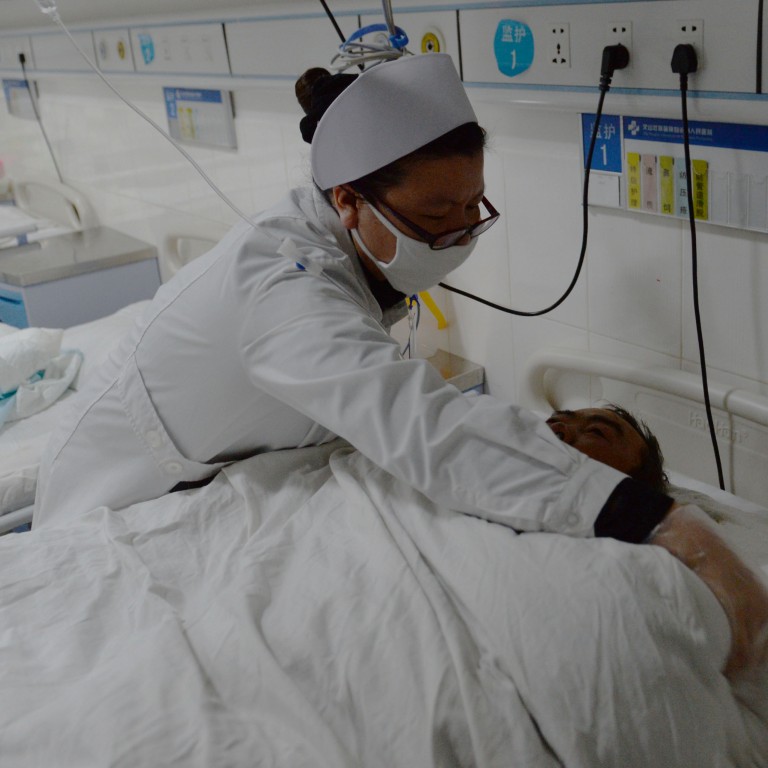
New | Investors pour into China's thriving health care business
The prospect of 223 million people aged 65 or older predicted to live on mainland China by 2030 is just too enticing for companies, despite significant risks such as weak hospital infrastructure, rising valuations and a dearth of doctors
Investors are rushing into China’s booming healthcare business, helping merger and acquisition deal values surpass those of the hot internet sector, as the mainland prepares to cater to hundreds of millions of elderly patients.
Encouraged by a relaxation of foreign ownership rules last year and a rapidly ageing population, private equity firms such as TPG Capital and industry players including Malaysia’s IHH Healthcare are investing in mainland hospitals, pharmaceutical companies and medical device makers.
The prospect of 223 million people aged 65 or older predicted to live on the mainland by 2030 is just too enticing for such companies, despite significant risks such as weak hospital infrastructure, rising valuations and a dearth of doctors.
The companies have begun leveraging connections of local partners to hire doctors, and to help expedite local licences and permits to start work on planned projects.
The mainland forecasts that healthcare spending by the private sector, state-owned enterprises and consumers will treble to 8 trillion yuan (HK$9.9 trillion) over the next five years, as it tries to cope with the boom in its ageing population, a result of its decades-long one-child policy and current low fertility rate.
“I spend 70 per cent of my time looking for healthcare deals in China,” said Steve Wang, co-founder of Hong Kong-based private equity firm Pine Field Capital. “It’s a really hot sector in China, as hot as mobile internet.”
After years of steady growth, mainland healthcare mergers and acquisitions more than doubled to a record US$18.5 billion last year. This January alone, deals totalled US$6.9 billion, an acceleration in activity that points to another blockbuster year.
The mainland started to liberalise its healthcare sector in 2009 but it was only in 2014 that it allowed full foreign ownership of hospitals, further deregulated drug prices and implemented rules to fast-track the approval of medical devices.
That optimism has pushed valuations for some firms steadily higher. Phoenix Healthcare, the mainland’s No1 private hospital group, listed in Hong Kong in December 2013 at 25.1 times expected earnings. It now trades around 35 times.
Other risks for prospective investors on the mainland, where government policies are often unpredictable, include a lack of doctors and the lengthy approval process for hospital licences.
The mainland had 14.6 physicians per 10,000 people in 2012 compared with 38.5 in Australia, 24.2 in the United States and 17.6 in Brazil, according to World Health Organisation data.
“When you look at the hospital and provision sector in particular, the point around doctor availability is an important one,” said Vikram Kapur, a partner at consulting firm Bain & Co. “So the risk to be managed is around making sure that you can attract enough physicians to private institutions.”
TPG, Blackstone and Chinese drugmaker Shanghai Fosun Pharmaceutical are among investors that have bought into hospitals, medical device makers and service providers on the mainland.
“We are very positive on the new China, especially the healthcare sector,” said Kinger Lau, chief China strategist at Goldman Sachs. “The concept of reform in the healthcare sector is very appealing from an investment point of view as living standards improve and the population ages.”
IHH Healthcare, Asia’s largest hospital operator, had a hospital in Shanghai and smaller clinics elsewhere on the mainland and was in talks to expand further, its chairman, Abu Bakar Suleiman, said.
“China is big, so it’s not just about going into Beijing and Shanghai,” Suleiman said. “For the private sector, these are very early days. We feel it’s a good thing for us to come in now.”

